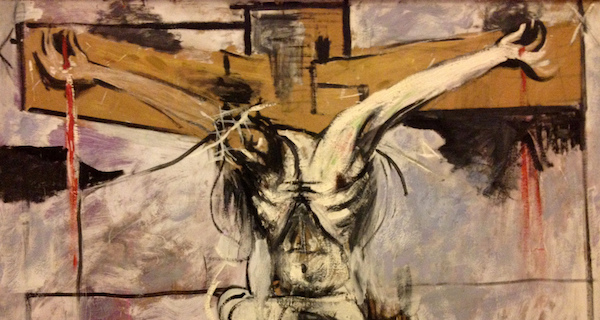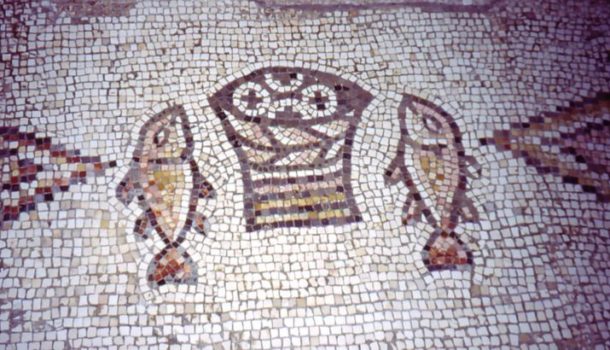+ 13th Sunday after Pentecost – August 30th, 2020 +
Series A: Jeremiah 15:15-21; Romans 12:9-21; Matthew 16:21-28
Beautiful Savior Lutheran
Milton, WA

Grace, mercy, and peace to you from God our Father and from our Lord and Savior Jesus Christ. Amen.
Last Sunday we learned the “Who and What” of Jesus through Peter’s confession. “You are the Christ, the Son of the living God.”
And now, as Paul Harvey used to say, for the rest of the story. The “Where, When, Why, and How?”
From that time Jesus began to show his disciples that he must go to Jerusalem and suffer many things from the elders and chief priests and scribes, and be killed, and on the third day be raised.
Jesus must go to Jerusalem, to the seat of religion and power. He must suffer many things at the hands of the religious leaders – the elders of the people, the chief priests and the scribes. Jesus doesn’t simply say that He would be killed, but it had to happen. He must be killed. And on the third day be raised.
Here Jesus reveals the true nature of His mission. Why He was virgin-born. Why He was baptized in the Jordan. Why He performed miracles. Why He came – to suffer many things. To be killed – not accidentally but intentionally, to endure the worst of deaths, death on the cross for you!
And on the third day rise again. Don’t forget how shocking these words are tha It’s the most audacious of predictions. No one had ever risen from the dead on His own. Yes, it happened a couple of times in the OT when a prophet would raise someone from the dead, notably Elijah and Elisha. Jesus would raise three people from the dead in His ministry. But no one in His right mind would make the claim that he would be killed and on the third day be raised. This is what sets Jesus apart from all other “christs,” all other “messiahs.” He said he would die and rise and then did it.
Peter, sadly, would have none of it. He pulled Jesus aside and rebuked Him, yes, rebuked Him. “Are you out of your mind? That’s not how you roll, Jesus! Suffer, die, rise. Are you kidding? That’s the last thing in the world that must happen to you! You need to start flexing your divine muscle. You’re the Christ, the Son of the living God. Christ’s don’t suffer; they end suffering. The Son of the living God doesn’t die. How can men kill God? We’ve left everything to follow you. Everything! The family business, our homes, our friends. People are going to think we’re nuts. So no more talk like that, Jesus! Not another word about suffering, dying, and rising.”
Before we’re too hard on Peter, remember that we’d have been just as outraged as Peter. Maybe even more. Who wants to hear about suffering, dying and rising? That’s not our way of doing things. We don’t want to deal with the reality of Sin in this world or in ourselves. Suffering and death are the result of Sin. We are reminded of our own mortality, and we don’t like it. And we certainly expect any respectable God not to get Himself mixed up in our suffering and death. And we certainly don’t expect the way of salvation to be the way of suffering, death and resurrection, but that’s precisely the way.
Peter the confessor became Peter the denier. Peter the spokesman of the Father became Peter the spokesman for the devil. This was not the Father talking, as it was when Peter confessed Jesus to be the Christ, the Son of the living God. This was the devil talking. “Get behind me, Satan!” Satan. That’s right. Satan was talking through the apostle Peter, tempting Jesus as he once tried three times in the wilderness. “You are not setting your mind on the things of God, but on the things of man.”
In other words, you are not looking at thing as God sees them but as man sees them, and that’s precisely the way the devil wants you to see things. Man’s way. Your way. The devil would have you trust your eyes rather than your ears, to trust your reason rather than God’s Word, to trust your senses and sensibilities rather than the One who came to save you.
This is about our cross too. “If anyone would come after me, let him deny himself and take up his cross and follow me.” “Follow me” Jesus says. It means follow Him through suffering and death and resurrection to eternal life.
A disciple is a follower. That’s what the word “disciple” means – one who follows another. Being a disciple of Jesus is about more than learning. It’s about suffering, dying and rising. It’s about denying one’s self and confessing Christ. It’s about losing in order to win, dying in order to live. To be dead to Sin about alive to God in Christ.
To follow Jesus is to be baptized into His death and life, to be joined to Him by Baptism in His suffering, death and resurrection. Your suffering and death can’t save you. They are the just wages of Sin. They are what Sin pays out in you. There’s no life there. But Jesus’ suffering and death lead to resurrection and life. And baptized into His suffering and death, you come into a life you can’t have on your own. This is how Jesus’ death and resurrection comes to you, in your Baptism.
In Baptism you were joined to Jesus’ suffering. His wounds are now your wounds for your healing. In Baptism you were joined to Jesus’ death. His death atones for your sins; don’t you try to atone for them with your sacrifices. In Baptism you were joined to Jesus’ resurrection and life. In Baptism you were given a new mind, the mind of Christ, set on the things of God not on the things of man, given to embrace the mystery of salvation.
And this is how we live, in the death and resurrection of Jesus.
In the name of + Jesus. Amen



